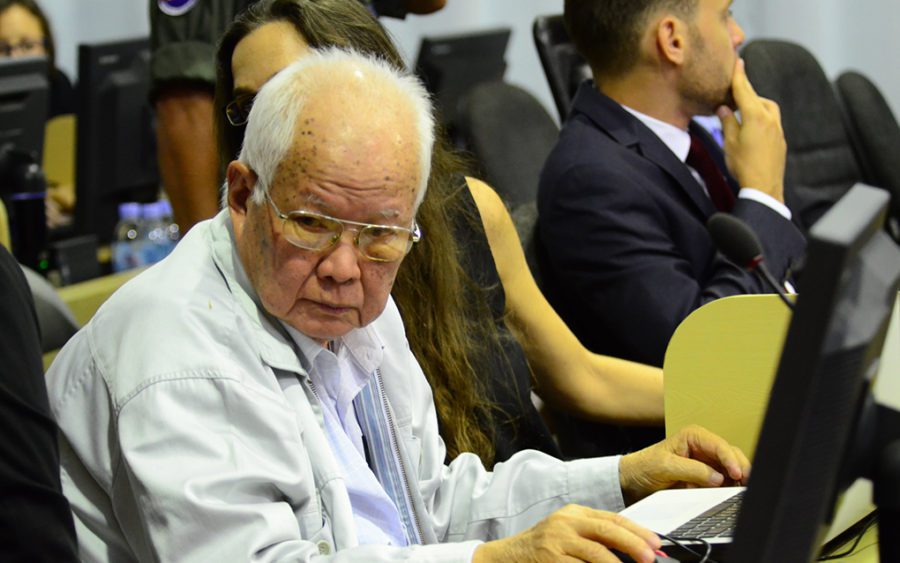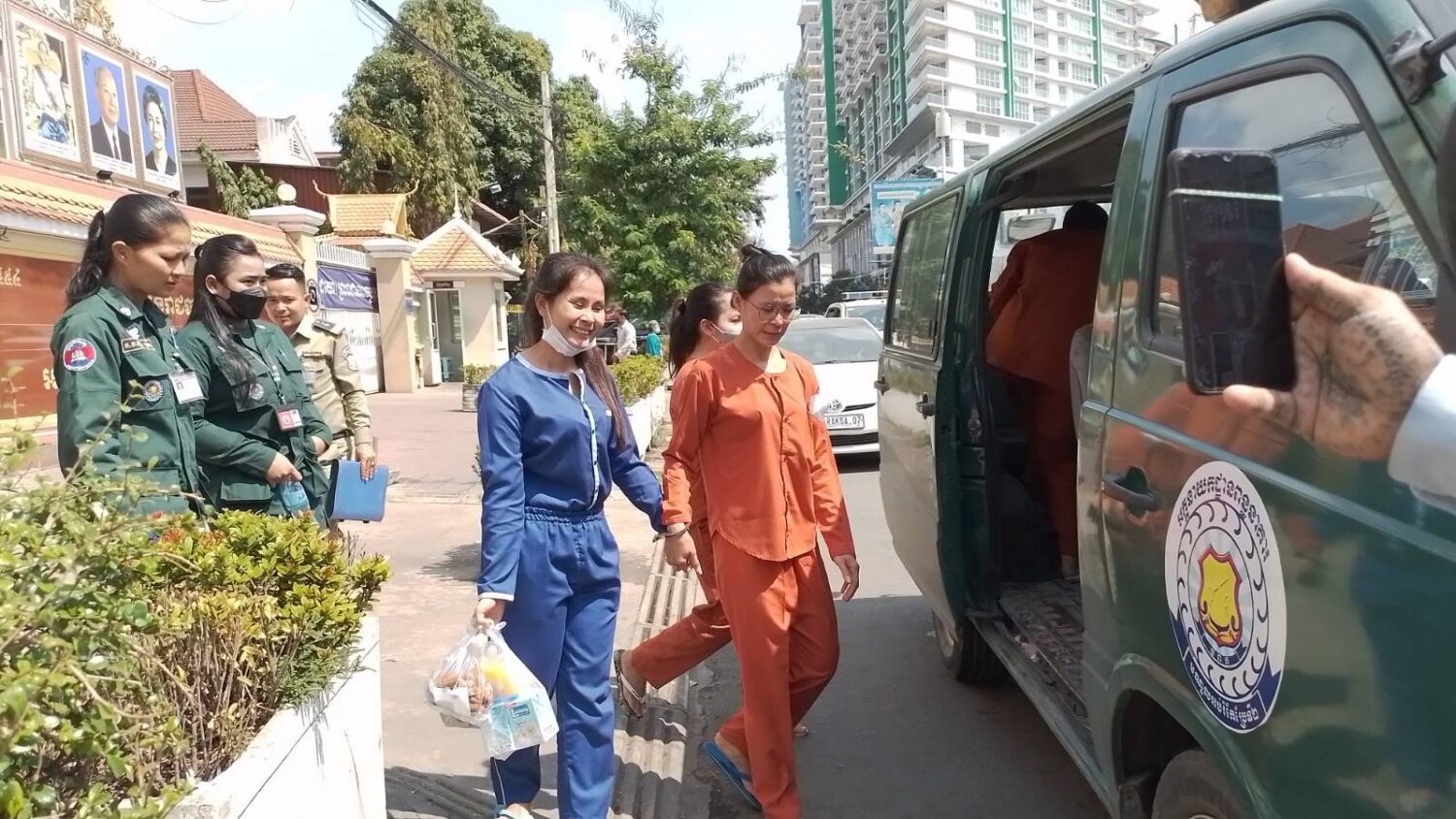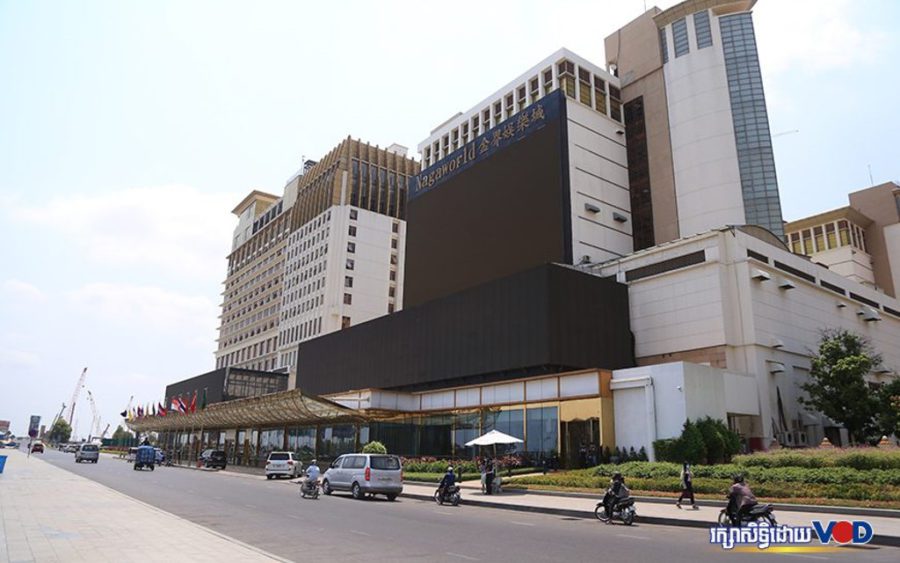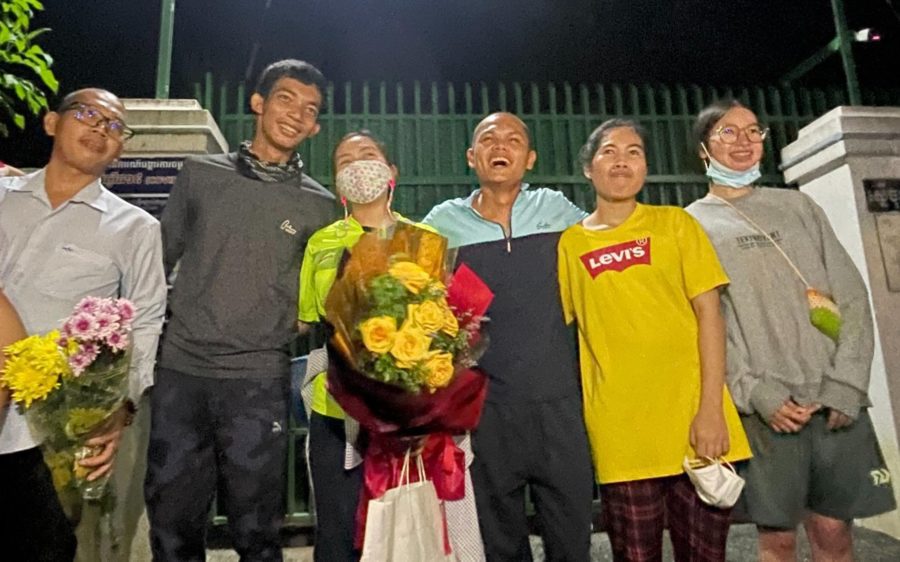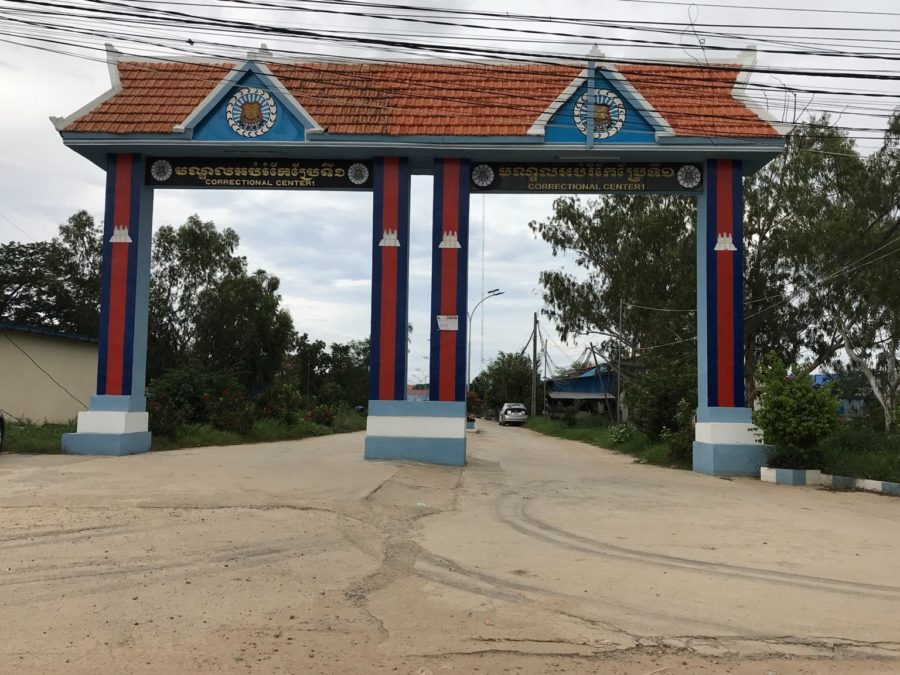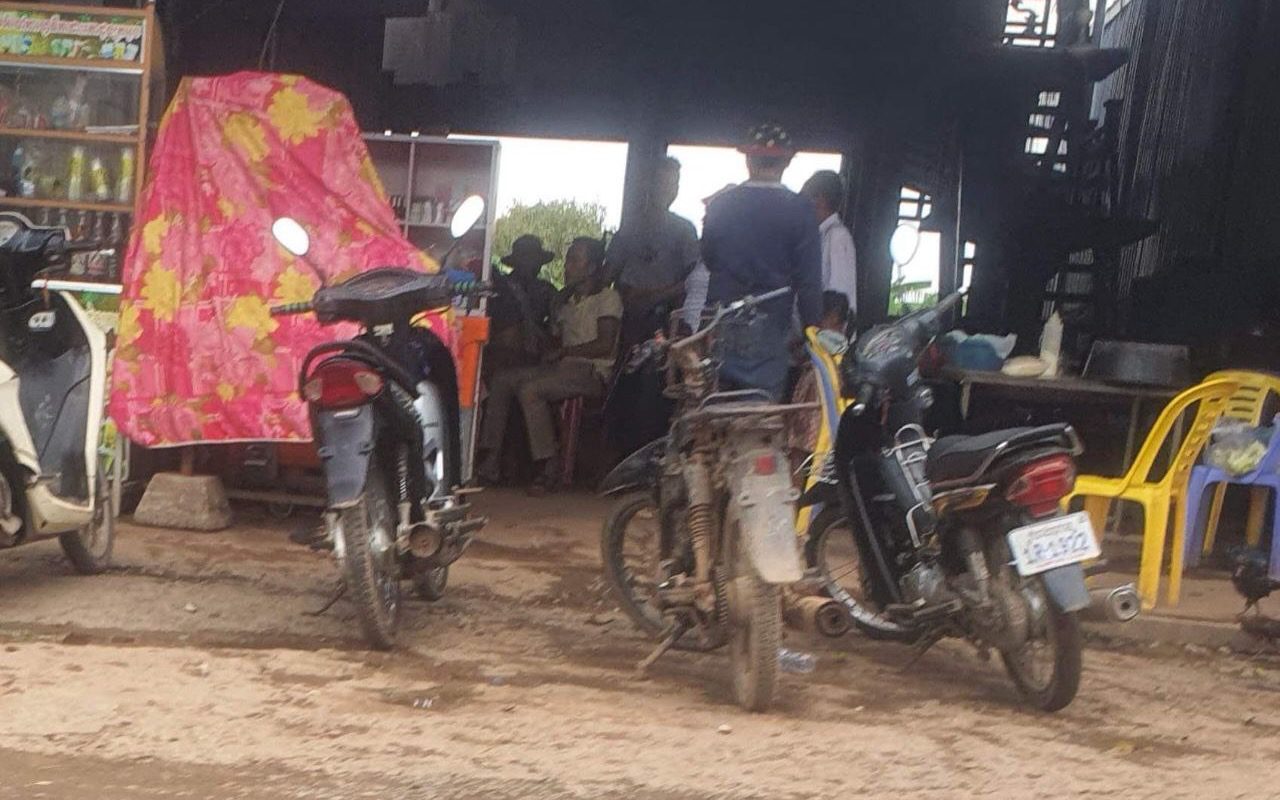When Khmer Rouge head of state Khieu Samphan, 90, took the stand for the last time this week, he said he was worried for the future of the country.
He was appealing against his conviction for crimes against humanity, including the genocide of ethnically Vietnamese people in Cambodia, as he testified at the Khmer Rouge Tribunal’s Supreme Court Chamber.
The prosecution had twisted his words about defending the country in war against the Vietnamese state into something that seemed to refer to Cambodian residents with a Vietnamese background, he said.
“It was wartime. I wanted the country to be protected against the invasion only. Independence, sovereignty, and territory integrity — all these were in my thoughts daily, but not to attack civilian people,” Samphan said.
He remained defiant to the end, saying that mass killings during the Khmer Rouge — in all, millions died under the regime, many from starvation — were not policy but rather violations of the ultranationalist communist party’s agenda.
“Today is the last day that I have to speak in front of you all,” he said. “I vehemently deny the accusation that I had the intention to commit crimes.”
“I would like to announce that I can’t accept the accusation that I participated in a plan aimed at commiting crimes against my own people, Cham people or Vietnamese people.”
Samphan said he had heard through media reports that Cambodia’s sovereignty, independence and border issues remained an issue today. He said it was unacceptable, and he felt very worried about the future of his country.
“I have never wanted anything besides my country having independence, sovereignty in which my people can live and build up the future together after restoring the economy that was destroyed by wars for many years,” he said. “I always wanted Cambodia to be independent, sovereign, in which its borders are respected, especially by Vietnam.”
He added that he knew he would die in prison.
“When I die, I will always remember the suffering of the Cambodian people. When I am dying and have seen that I am alone … being sentenced as a symbol rather than my actual actions.”
Samphan’s final appeal was part of hearings that began on Monday and concluded on Thursday.
Norng Chanphal, a former victim at S-21, the Khmer Rouge’s infamous extermination center in Phnom Penh, said Samphan was just making excuses.
“At that time, I was a child and was really ashamed because our nation killed our own nation,” Chanphal said. “As an innocent child, all family members were killed … as well as the Cambodian people all over the country, who were in unforgettable pain for the rest of their lives.”
History professor Vong Sotheara agreed, and added that the life sentence against Samphan was indeed merely symbolic if compared to the brutality of his regime.
“Maybe like he said. Based on observation, it is just a symbol because it is not as cruel as his regime,” Sotheara said.
Two others have been convicted by the Khmer Rouge Tribunal — “Brother No. 2” Nuon Chea and S-21 chief Kaing Guek Eav, known as Duch — but Samphan is the only one still alive.


